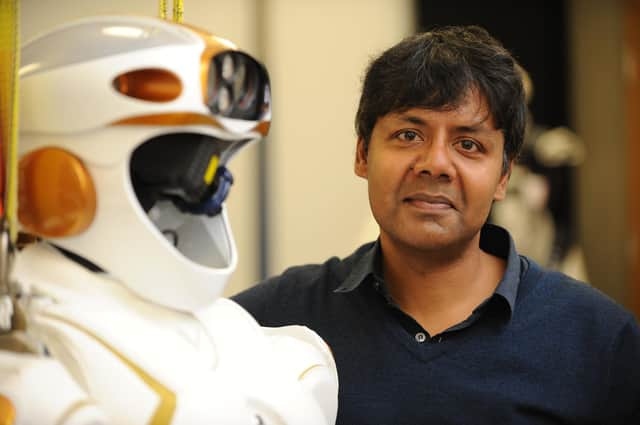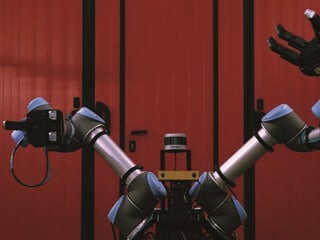How robots could be used to treat cancer and perhaps even lung damage caused by Covid – Professor Sethu Vijayakumar


However, I am fascinated with the question of how the latest advances in my field can help tackle some of the biggest and most intriguing healthcare challenges of our generation.
Personalised medicine and treatment have been the holy grail in medical interventions for a while, with a promise to help reduce collateral damage by being more targeted and effective. One such area of work I have been exposed to is radiotherapy for the treatment of malignant tumours, specifically prostate cancers.
Advertisement
Hide AdAdvertisement
Hide AdA key challenge in effectively delivering radiotherapy to treat these cancers is ensuring that tissues and organs surrounding the tumour are not exposed to too much harmful radiation. We have been contemplating how robotics can potentially play a significant role in addressing this challenge.
Roboticists know how to program complex robot arms to navigate narrow, complicated spaces in 3D and in real-time, operating even in constantly changing environments.
Therefore, instead of using classic radiotherapy delivery devices, which do not have the flexibility to direct rays from all directions, we could exploit multi-joint robot arms to ensure that only the tumour cells are targeted while minimising exposure to the surrounding tissues.
Of course, there are many supporting acts that need to come together to make this a practical reality – for example, real-time imaging, measurement of tumour hypoxia (oxygen levels), adaptive adjustment of the radiotherapy dose, and clinical trials. But it is a challenge worth pursuing since scientists believe one-in-two people will develop cancer in their lifetime.
Another interesting healthcare domain, and one that is very topical with Covid affecting people around the world, was highlighted in my conversations with practising clinician and scientist, Professor Kev Dhaliwal. He works across scientific disciplines looking at the treatment of lung diseases like TB, lung injury in intensive care, pneumonia, lung cancer and, recently, the evolving effects of Covid on lungs.
One of the ambitions of a project like this is to deliver personalised solutions by testing various drugs live at the sites of lung inflammation or damage in individuals to chart the best strategy.
Sensing, monitoring and delivery of drugs through endoscopic devices is already a challenge, but repeatedly doing this precisely day-after-day to the same site under human guidance is near impossible.
This is where automated, autonomous navigation with highly flexible robots can play a significant role, especially if one can use individualistic landmarks inside each patient’s lungs for guidance.
Advertisement
Hide AdAdvertisement
Hide AdThese are but a few examples of expertise in one domain crossing over to address a seemingly complex problem in another – the key message is rather than thinking that methods must necessarily become more complex to deliver breakthroughs, we ought to ponder if there are simple solutions to problems from one domain that transgress classical discipline boundaries.
Sethu Vijayakumar is a fellow of the Royal Society of Edinburgh, professor of robotics at Edinburgh University, programme director for artificial intelligence at the Alan Turing Institute, and the Edinburgh Centre for Robotics’ founding director. The RSE is Scotland's national academy, bringing great minds together to contribute to the social, cultural and economic well-being of Scotland.
A message from the Editor:
Thank you for reading this article. We're more reliant on your support than ever as the shift in consumer habits brought about by coronavirus impacts our advertisers.
If you haven't already, please consider supporting our trusted, fact-checked journalism by taking out a digital subscription.
Comments
Want to join the conversation? Please or to comment on this article.
